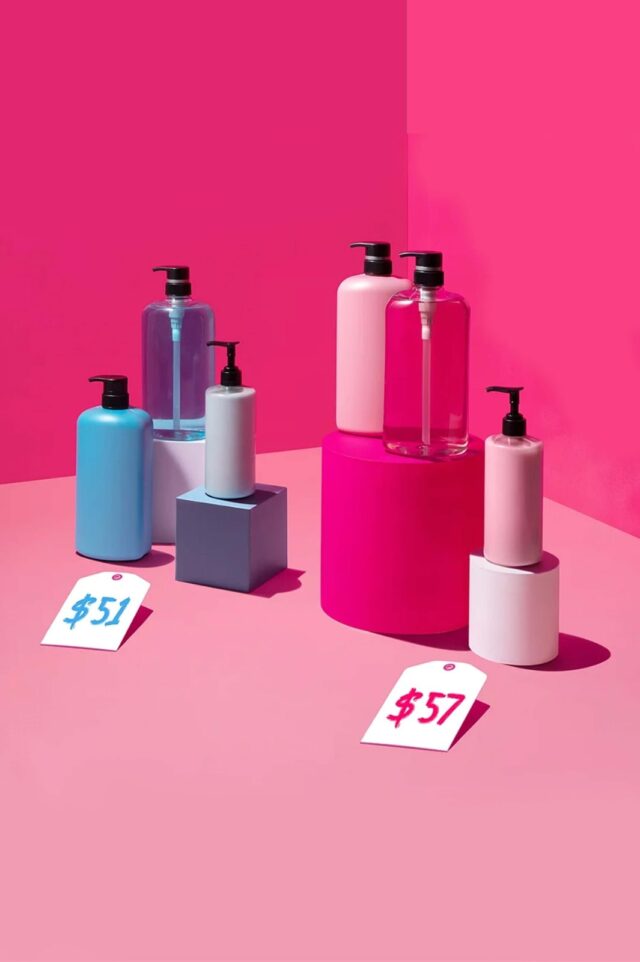Pink Tax is a marketing ploy used by companies to charge women much more than men. The only beneficiaries in this case are the companies which charge it.
Pink Tax stinks. Wondering why? Here are the reasons.
What Exactly Is ‘Pink Tax’?
Pink Tax is gender-based pricing wherein products sold to women cost way more than similar products for men. Why should you pay more for being a woman? That is why this is a very stinky concept.
For example, a Nivea lip balm of the same quantity and size costs Rs 250 for a woman and Rs 165 for a man. An H&M plain white T-shirt costs Rs 599 for women and Rs 399 for men. These are some of the very subtle discrepancies.
Pink Tax is not a new idea. It is a term which was first coined in 1994 and has been a disturbing issue for women since then. The problem has aggravated owing to the lack of knowledge among people about it.
Most women are oblivious to the extra money they are paying to avail feminine goods and services. In fact, from shampoos to clothes and styling, women are paying a higher amount than men, that too for the same products.
When you hear the word “tax”, the idea that it is a tool used by the government pops up in your mind. However, in reality, corporate companies in countries like Argentina, the United Kingdom and even India are using it as a method to increase their profits, by charging women more than men.
According to Cleartax, the New York State Department of Consumer Affairs found in a study that items for women were priced 7% higher than those for men. Even gender-neutral items, with personal care and hygiene products for women, show a 13% price disparity.
Further research in the UK proved the fact when revelations such as women’s deodorant being 8.9% pricier than men’s and women’s facial moisturiser costing 34.28% more, came into the picture.
Also Read: Insta Handle ‘Seven Angry Women’ Brings Shocking Wrongdoings At National Law Schools To Notice, Gujarat HC Orders Inquiry
What Is The Say Of Experts?
The executive chairperson of Biocon, Kiran Mazumdar Shaw, took to Twitter to slam the Pink Tax as a “shameful gender bias”. She even encouraged women to boycott products that the tax is applied to.
Brand and business strategy specialist, Harish Bijoor, says, “Pink Tax has no actual purpose, although it does base the theory that a brand will charge a consumer on a product according to what they can bear in terms of money.”
The irony is that women get paid 14.8% less than men, for the same job, yet get charged up to a 100% premium for products targeted at them. It is not possible for women in India to go by even a day without this tax enveloping their basic needs.
Surprisingly, basic necessities like sanitary napkins also fall prey to the ‘Pink tax,’ despite being exempted from the Goods and Services Tax (GST). They are very expensive for the 13.3% of the Indian population, who are poor women.
Women with meagre or no income are left with no other option than to use cloth pads, which are one of the root causes of several diseases in women.
The United Nations has also called upon countries to get rid of the Pink Tax to ensure women have full and equal access to economic participation.

What Are The Solutions?
A very efficient way to attack this issue is through transparency in pricing to ensure that consumers can make informed decisions and avoid overpaying. This strategy sounds harmful to companies, but actually, it is not. Adopting this tactic will allow businesses to understand their competitors even more.
Economist Sanchita Mukherji, in a recent appearance on NDTV, said that companies must be audited with respect to how they arrive at the particular pricing of a product; and companies will do so only when the consumer tells them that they will not have any other way.
The companies use gendered marketing to justify higher prices for products targeted at women, with the excuse of added aesthetics, and ingredients or by introducing just slight variations like scents or colours. However, often the only difference is in the packaging while the core functionality remains the same.
Moreover, stereotypes lead to the perception that girls are willing to pay more for products that meet higher beauty standards, thus influencing their purchasing decisions.
Thus, steps must be taken to solve this grave issue which not only perpetuates gender-based discrimination but also adds a financial burden on women. This has a negative economic impact, which hinders women’s ability to save or invest, thus affecting their independence.
Image Credits: Google Images
Feature image designed by Saudamini Seth
Sources: Deccan Herald, NDTV, Mint
Find the blogger: Unusha Ahmad
This post is tagged under: pink tax, women, gender, Nivea, H&M, products, UK, Argentina, India, Twitter, GST, UN, strategies, business, company
Disclaimer: We do not hold any right, or copyright over any of the images used, these have been taken from Google. In case of credits or removal, the owner may kindly mail us.